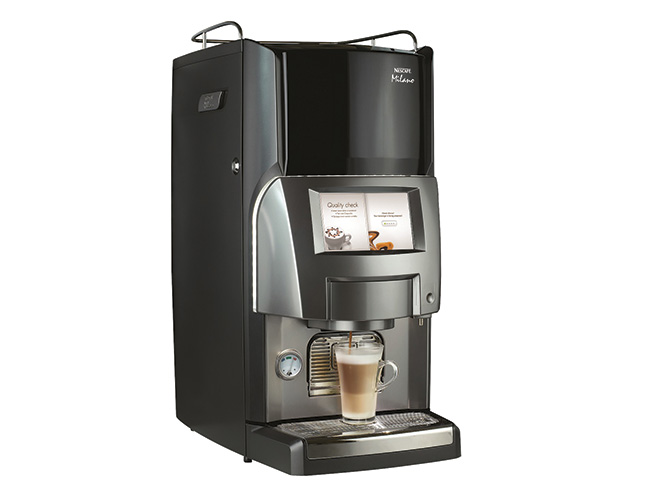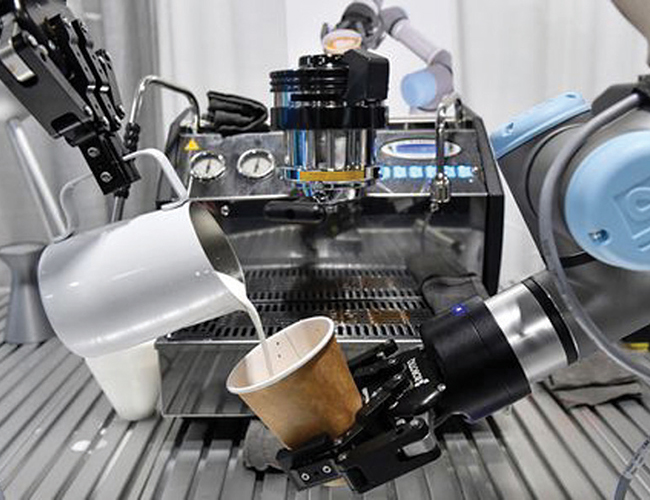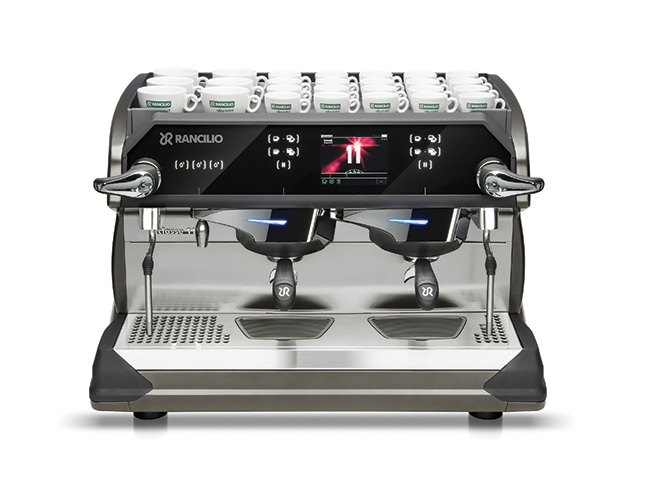Rise of the machines: the hybrid espresso
The hybrid espresso machine may be all things to all baristas: it's a traditional machine that can be used by the fully trained artiste as well as a push-button brewer for the novice. Ian Boughton looks at the next wave of coffee making
The coffee market has seen a sometimes grudging acceptance of technological advances over the past few years. For example, when the basic espresso machine first became the automatic bean-to-cup, the traditionalists derided it before later acknowledging that it had many admirable time-saving benefits and could actually brew great coffee. And when the capsule concept first appeared it was dismissed as a novelty, but recently, at a trade conference, one of Britain's champion baristas stated: "capsules are one of the most perfect ways of brewing speciality coffee."
And now we have a new concept. The manual espresso machine has been mated with the automatic to create the hybrid. With this, trained staff can create espressos the way they usually would, but untrained staff can use exactly the same machine as a push-button brewer.
"This is a trend," confirms Marco Olmi, a director at Drury Tea and Coffee. "In coffee quality, the traditional espresso machine in the hands of a skilled operator still has the edge, and in terms of costs, the traditional machine always wins hands-down. The hybrid is a traditional machine that incorporates the best technology of automatic bean-to-cup machines. It's an espresso machine with aids and back-ups for those who need them. It's as automatic as you can get, while still allowing a trained barista the freedom to use it manually."
At Cimbali, sales director Daniel Clarke says that his S30 is typical of the new generation of super-smart automatic machines: "Fast-paced catering environments are always going to be best suited to a super-automatic, and with the advances Cimbali has made in technologies that take the guesswork out of the brewing, the difference in quality is minimal and probably only noticeable to the coffee enthusiast.
"The new technologies include MilkPS, which allows even the smallest quantity of hot or cold milk to be frothed, the SmartBoiler, which boosts steam and hot water capacity throughout the brewing cycle, avoiding drops in production, and the Perfect Grinding System, which automatically performs adjustments and corrections to the coffee dose and grind to ensure consistency in the brew.
"Traditional machines will always be the machine of choice for the ‘fifth wave' and for specialist operators who can run a fully trained team of specialist baristas. But in a catering industry known for a high churn rate, we have had to create technologies which help inexperienced staff deliver a consistent cup."
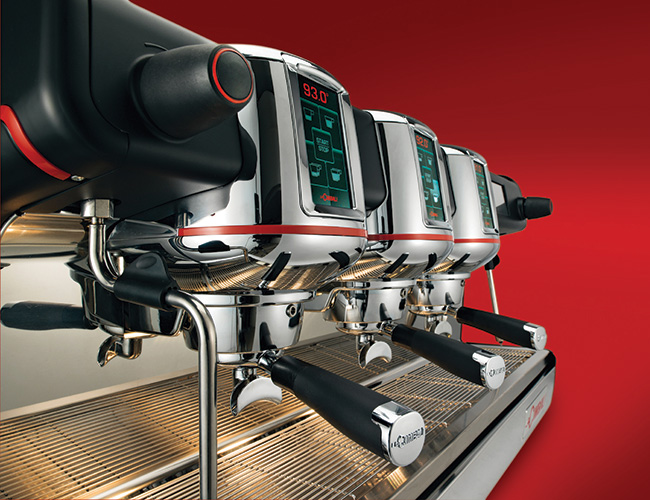
Crest of a wave
His mention of ‘fifth wave' refers to a well-known and occasionally derided trade term, which refers to the progress of the coffee trade over the past 20 years, defined in waves. The first wave of coffee is held to be the general brewing methods of 20th century catering, which often involved instant coffee. The second wave was the arrival of the coffee shop market and the wider introduction of espresso coffees. This has been described as the catering trade's realisation that it could charge more for its coffee if it didn't taste like complete rubbish and even more if a shot of flavour was added and ‘ino' placed at the end of the drink's name.
The third wave was the arrival of ‘artisan' coffee, with both roaster and barista becoming identified as skilled operators and not simply menial staff.
The fourth wave was the comparatively recent trend for certain coffee houses to go over the top in the science of brewing, measuring doses to the nearest gram and temperatures to the fraction of a degree. Cafés became ‘tasting rooms', where customer satisfaction came a long way second to the reverence that had to be shown to the skilled barista.
The fifth wave is an as-yet vaguely defined suggestion that customers and baristas will come together in a shared appreciation of the deeper qualities of coffee and that the situation of the farmers, most of whom are still impoverished, will improve.
Peak perfection
At Caffeine, managing director Justin Stockwell says the new Schaerer machines are the closest that automation has come to recreating the milk-handling of a top barista.
"Schaerer's Best Foam technology is designed to allow operators to produce perfectly textured foams, but it can also create special foams, such as the Cappuccino Fujiyama, a peak of creamy foam, at the touch of a button. This is unique, because to create the peak, the foam has to be adjusted to the perfect structure by maximising the surface tension of the bubbles."
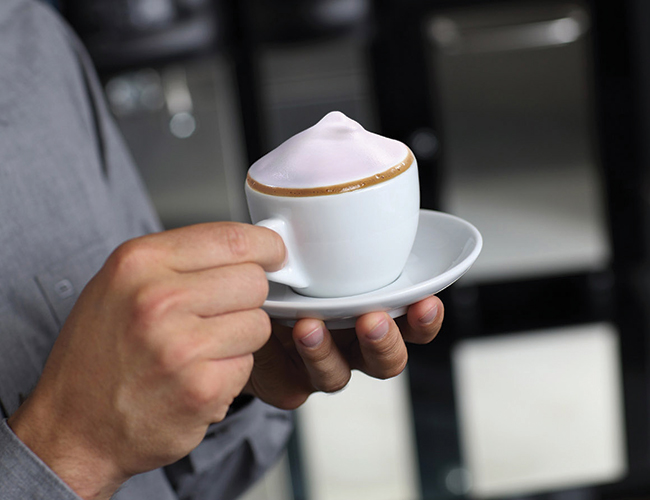
t UCC Coffee, category head Phil Smith is seeing a rise in interest in automatic machines from pubs, bars and restaurants - the 'non-specialist' coffee outlets who are realising their coffee standard has to be high. They see a useful benefit, he notes - automatic machines allow the barista to focus on customer service, whereas some traditional baristas virtually ignore the customer to concentrate on brewing.
Instant gratification
Machine development now even includes the simplest coffee of all: the instant soluble product. The rise of 'new generation' machines has been prolific, says Richard Green, head of beverage solutions at Nestlé Professional. "One such machine is the Nescafé Milano 2.0, and another innovation is Milano Ispirazione Italiana, a new blend of Italian-inspired coffee that delivers a consistent espresso base with a thick crema and delicious aroma in under 10 seconds."
It will certainly cause some unrest in the trade, because this is another Nescafé soluble product and whether or not a true 'espresso' can be produced by instant coffee is a subject for debate. It is, however, now widely accepted that the capsule can produce good espresso. At Jacobs Douwe Egberts Professional, maker of the Tassimo machine, which offers capsule-packed coffee from brands such as Kenco and Costa, category specialist Chris Sew-Hoy offers some almost unbelievable figures.
